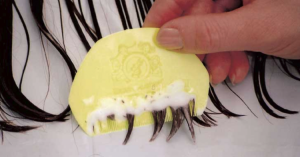
In an intriguing intersection of personal values and practical parenting concerns, a woman from Australia has sparked a debate by publicly expressing her frustration with a vegan mother’s refusal to kill head lice infesting her daughter’s hair. The issue has gained renewed attention recently after a letter from 2015 resurfaced online, highlighting the moral complexities that can arise when one’s lifestyle choices conflict with conventional expectations.
The concerned parent, who initially sought advice from the Australian coaching platform 9Coach, revealed that her daughter shared a close bond with the girl living next door. The unique aspect of the situation was that the neighboring family adhered to a strict vegan lifestyle. The writer was quick to emphasize their respect for the family’s choices, even accommodating vegan-friendly meals for their daughter’s friend during playdates.
However, the situation took a perplexing turn when the concerned woman noticed her daughter’s playmate scratching her head with an intensity that suggested an issue beyond the usual childhood curiosity. A closer inspection revealed a head lice infestation in the young girl’s hair. Concerned for both girls’ well-being, the parent decided to approach the vegan mother with her discovery.
To her astonishment, the vegan mother acknowledged the infestation but expressed an unwillingness to exterminate the parasites due to her commitment to non-violence and her vegan beliefs. This decision left the woman baffled, prompting her to seek advice on how to navigate this dilemma.
The ethical stance at the center of the debate revolves around the question of whether veganism, which often extends to abstaining from harm to animals and living beings, should also extend to parasites like head lice. The vegan mother’s refusal to kill the lice is an expression of her belief in the sanctity of all life forms, even those that are typically deemed pests.
The situation has raised a series of thought-provoking questions, including the role of personal beliefs in parenting decisions and the boundaries of ethical practices. While the woman who wrote the letter emphasizes her respect for the vegan family’s choices, she is also concerned about her daughter’s well-being and the potential consequences of untreated head lice, such as itching, inflammation, and infection.
The letter’s resurfacing prompted discussions about possible solutions to the dilemma. One suggestion was for the children to play a game of “hairdresser” during their playdates, allowing the concerned woman to address the issue directly. However, this approach could potentially strain the relationship between the families. Another suggestion was to confront the vegan mother and insist on treating the lice before allowing the girls to play together. However, this approach may still result in conflict and might not be productive in promoting understanding.
In light of this situation, it’s essential to acknowledge the unique challenges that arise when personal beliefs intersect with everyday decisions, particularly in the realm of parenting. The incident also highlights the need for open communication and mutual respect among individuals with differing perspectives.
On a broader scale, the incident underscores the complexity of ethical considerations within the framework of veganism. While the core principle of veganism is often focused on avoiding harm to animals, this situation challenges vegans to consider the broader implications of their beliefs, including their application to organisms that are not conventionally considered in moral debates.
As the ethical conversation around veganism continues to evolve, it’s clear that individuals will encounter situations that test the boundaries of their beliefs. In this case, the vegan mother’s refusal to kill head lice raises a compelling question: Can veganism extend to parasites, and what does this mean for the compassionate principles that guide our choices?
As society becomes more attuned to the intricacies of ethical decision-making and the varying ways that personal values can manifest, these kinds of moral dilemmas are likely to become more common. The incident serves as a reminder that compassionate living and ethical choices can sometimes present conflicting challenges, and the process of navigating these challenges requires careful consideration, empathy, and open dialogue.





